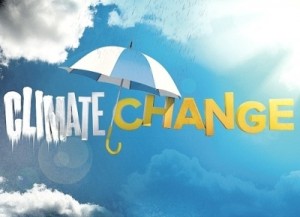-
posted by Anindya Nov 1st, 2011
 Early in school, children learn that wonderful line: “One touch of nature makes the whole world kin.” Later in life, they learn that the line is from Shakespeare. Later still they learn that perhaps the only thing that can unite humankind is an attack from outer space. Shakespeare and aliens give children reason to believe that humans will realize they have a common stake in life on earth.
Early in school, children learn that wonderful line: “One touch of nature makes the whole world kin.” Later in life, they learn that the line is from Shakespeare. Later still they learn that perhaps the only thing that can unite humankind is an attack from outer space. Shakespeare and aliens give children reason to believe that humans will realize they have a common stake in life on earth.But children grow up to learn that humanity has failed itself. Nature has not been able to turn selfish men into the family of man. The inexorable advance of climate change has not united humanity against the threat.
The world is not awash in human reason. It has been three decades since scientists began to warn about the dangers of climate change. That is an entire generation. Hence, for a generation, humans largely have ignored what science has had to say about their future — or the lack of it. Like the proverbial ostrich burying its head in the sand, we have tried to wish away the reality of climate change. Now, that denial is costing us deeply, and it will cost us more in the future.
These are the thoughts that came to mind when I read about the flooding in Thailand and Cambodia. At least 500 lives have been lost in the floods, which are said to be Thailand’s worst in 50 years. Indonesia, too, is not immune to the mood swings of nature.
Of course, it is always difficult to tie individual events directly to climate change. However, when patterns of natural disasters begin to form, it is impossible to ignore the possibility of a common cause.
Ultimately, that cause is climate change, whose effects are seen in the floods, rising sea levels, storms, typhoons, draughts, desertification and other calamities that have devastated communities and habitats from North America to Southeast Asia.
The Asian Development Bank said in a recent report that environmental and weather-related disasters displaced more than 30 million people in Asia alone last year. Asian governments must prepare now to tackle the ensuing problems. It will be costly. According to an article in The Guardian, it would cost about $40 billion in Asia alone to put in place protective measures, from seawalls to re-growing mangrove swamps.
Mangrove swamps, of course, were nature’s gift to the human species. But a combination of human need and greed resulted in what is diplomatically called environmental degradation. In reality, that degradation is the folly of man, who thinks that he can steal from nature forever without punishment. Now the mangrove swamps will have to be regrown, at a high cost.
Climate change requires all of us to view nature not as an optional tag-on to human aspirations but as the force that makes those aspirations possible in the first place — and ultimately limits them.
This is why the Kyoto Protocol is so important. It sets binding targets for 37 countries for reducing greenhouse gas emissions amounting to an average of 5 percent against 1990 levels over the 2008-12 period. And soon a new international framework will have to be negotiated to meet the reductions advised by the UN’s Intergovernmental Panel on Climate Change.
At the diplomatic level, climate change has become the arena of acute dissension and discord between developed and developing nations. The former want countries such as China and India to do more.
Meanwhile, organizations such as the World Wide Fund for Nature are doing valuable work in trying to create a new mind-set on climate change and global warming. WWF transforms scientific, academic and bureaucratic concepts such as “sustainable development” and “the greenhouse effect” into language that the layman can understand.
To avoid dangerous climate change, global temperatures should not rise to more than 2 degrees Celsius warmer than it was before the onset of the Industrial Age in about 1800.
I hope that more people — children in particular — will be encouraged to learn about the work of organizations such as WWF. This will make them see climate change not as an issue that can be left to future generations to handle but as a reality that they will face directly in their own lifetimes.
The climate is changing. We will have to change as well.
The Jakarta Globe, October 21, 2011
http://www.thejakartaglobe.com/commentary/the-climate-is-changing-are-you/472999
Leave a Reply
INSTAGRAM
TWITTER
FACEBOOK
-









